Special Forces are elite military units trained for unconventional missions, requiring high adaptability and specialized skills. Originating from historical precedents like the SAS, these forces operate globally, addressing diverse threats from counterterrorism to humanitarian interventions, making them a critical asset in modern military strategy.
Definition and Scope of Special Forces
Special Forces are elite military units specifically trained to execute unconventional and high-risk missions. They are defined by their advanced training, adaptability, and ability to operate in diverse environments. These units are designed to conduct missions that conventional forces cannot, such as counterterrorism, direct action, and special reconnaissance. Their scope includes global operations, often requiring precision, stealth, and strategic impact. Special Forces are characterized by their expertise in guerrilla warfare, foreign internal defense, and asymmetric conflicts. They play a critical role in addressing modern security challenges, making them indispensable in both military and humanitarian crises. Their operations are often classified, emphasizing their unique role in national defense strategies.
Historical Evolution of Special Forces
Special Forces trace their origins to World War II, with units like the British SAS pioneering unconventional warfare. Post-war, their role expanded during the Cold War, focusing on counterinsurgency and covert operations. The 1950s and 60s saw the establishment of iconic units such as the U.S. Green Berets and European special forces. These groups were trained to conduct guerrilla warfare, sabotage, and intelligence missions. The 1980s marked a modernization phase, emphasizing counterterrorism and direct action. The post-9/11 era saw their role shift to combating asymmetric threats, with operations in Afghanistan and Iraq. Today, Special Forces are integral to global security, adapting to emerging challenges while maintaining their legacy of excellence and versatility in unconventional warfare.
Key Characteristics of Special Forces
Special Forces are elite military units distinguished by their advanced training, adaptability, and specialized skills. They operate in small, autonomous teams, excelling in unconventional warfare, counterterrorism, and high-risk missions. Their key traits include superior physical and mental conditioning, expertise in surveillance, sabotage, and infiltration, as well as the ability to function in hostile, unstructured environments. Special Forces are equipped with cutting-edge technology and weaponry, enabling them to execute precise, low-visibility operations. Their ability to think strategically and act decisively makes them indispensable in addressing modern security challenges. Despite their relatively small size, Special Forces wield significant influence, often serving as a nation’s strategic vanguard in both overt and covert conflicts.
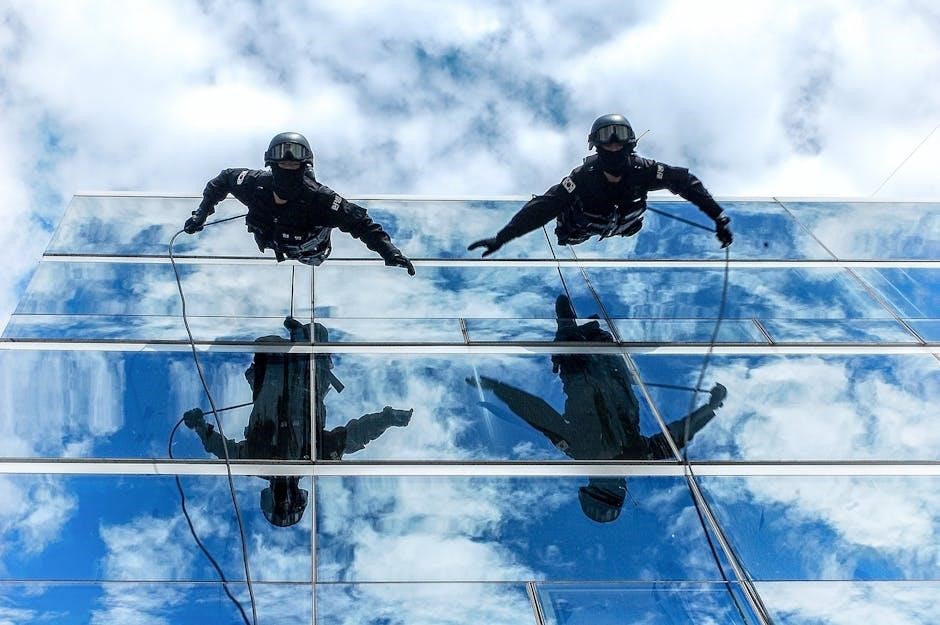
Roles and Missions of Special Forces
Special Forces excel in counterterrorism, direct action, and unconventional warfare. They conduct high-risk missions globally, combining combat prowess with training foreign forces to enhance international security efforts.

Direct Action Missions
Direct action missions involve precise and high-risk operations, such as raids, seizures, and neutralization of enemy targets. Special Forces, like the French Commandement des Forces Spéciales Terre (COM FST), execute these missions with utmost secrecy and efficiency. These operations often require advanced planning, specialized equipment, and coordination with intelligence agencies. The goal is to achieve strategic objectives with minimal collateral damage. For instance, during the Tigre 2 exercise, French and Saudi Special Forces demonstrated their capability in conducting direct action missions, showcasing their ability to operate effectively in diverse environments. Such missions highlight the critical role of Special Forces in modern asymmetric warfare, where conventional military strategies are insufficient. Their expertise ensures rapid and decisive outcomes, making them indispensable in contemporary conflict scenarios.
Special Reconnaissance Missions
Special reconnaissance missions involve gathering critical intelligence behind enemy lines, often in high-risk environments. These operations require advanced surveillance techniques, stealth, and adaptability. Forces like the Commandement des Forces Spéciales Terre (COM FST) specialize in such missions, employing cutting-edge technology and expertise. Their training includes survival and evasion tactics, enabling them to operate undetected. These missions provide vital information for strategic decision-making, ensuring operational success. International cooperation, such as between French and Belgian Special Forces, enhances the effectiveness of these operations. By combining human intelligence with technological assets, Special Forces ensure accurate and actionable insights, making them indispensable in modern warfare and counterterrorism efforts. Their role in reconnaissance underscores their versatility and strategic importance.
Counterterrorism Operations
Counterterrorism operations are a cornerstone of Special Forces’ missions, targeting terrorist networks and disrupting their activities. Units like the Commandement des Forces Spéciales Terre (COM FST) specialize in such operations, utilizing advanced tactics and technology. These missions often involve high-risk scenarios, such as hostage rescues and neutralizing key threats. Special Forces are trained to operate with precision, minimizing collateral damage while maximizing impact. International cooperation, such as joint exercises between French and Belgian units, enhances their effectiveness. Counterterrorism operations require constant adaptation to evolving threats, making Special Forces indispensable in global security efforts. Their expertise ensures the protection of innocent lives and the disruption of terrorist organizations worldwide.
Foreign Internal Defense (FID) missions involve Special Forces training and advising foreign military forces to enhance their capabilities against internal threats. These operations are crucial for stabilizing regions and building partnerships. Special Forces units, such as the French Forces Spéciales, often engage in FID missions, sharing expertise in counterinsurgency and counterterrorism. By strengthening local forces, they contribute to global security and reduce the need for direct intervention. FID missions also foster international cooperation, as seen in joint exercises between French and Saudi Special Forces. These efforts ensure long-term stability and empower partner nations to address their own security challenges effectively. Such missions are a vital component of modern military strategy and diplomacy. Unconventional Warfare (UW) involves Special Forces conducting operations through indirect and non-traditional methods. These missions often involve guerrilla tactics, sabotage, and intelligence gathering to destabilize adversaries. Special Forces units, such as the French Forces Spéciales, are trained to operate in hostile environments, supporting local resistance groups and undermining enemy control. UW missions require deep cultural understanding and the ability to blend into local populations. They are critical in countering insurgency and achieving strategic objectives without direct confrontation. By fostering alliances and empowering indigenous forces, Special Forces play a pivotal role in shaping the battlefield and advancing national interests through unconventional means. These operations are often long-term and demand immense adaptability and resilience. Special Forces undergo rigorous training, focusing on physical endurance, tactical expertise, and survival skills. Programs emphasize adaptability, mental resilience, and advanced weaponry. Units like the French Forces Spéciales endure intense simulations, preparing for covert operations and hostile environments. Survival techniques, such as evasion and interrogation resistance, are prioritized. Training also includes language proficiency and cultural immersion to operate effectively worldwide. These preparations ensure Special Forces are capable of executing high-risk missions with precision and lethality, making them a cornerstone of modern military strategy. Their training is continuous, ensuring they remain ahead of evolving threats and operational demands. This comprehensive approach fosters elite operatives ready for any challenge. Physical and mental conditioning is the foundation of Special Forces training, ensuring operatives can endure extreme environments and high-stress situations. Rigorous exercises build endurance, strength, and agility, while mental resilience is cultivated through exposure to simulated combat scenarios. Techniques such as meditation and stress management are employed to enhance focus and emotional stability. These programs are designed to push individuals beyond their perceived limits, fostering a mindset capable of overcoming any obstacle. The integration of physical and mental conditioning ensures Special Forces personnel are prepared to execute missions with precision and composure, even in the most hostile settings. This holistic approach is critical to their success and survival. Tactical training and simulation are critical components of Special Forces preparation, focusing on real-world scenarios and advanced combat techniques. Operatives engage in mock missions, urban warfare drills, and hostage rescue exercises, honing their ability to adapt under pressure. Simulations replicate diverse environments, from desert terrains to densely populated cities, ensuring versatility. The use of cutting-edge technology, such as virtual reality and AI-driven systems, enhances immersion and realism. These exercises emphasize precision, coordination, and strategic decision-making, enabling Special Forces to execute missions with minimal risk. Continuous evaluation and refinement of tactics ensure they remain ahead of emerging threats, making them formidable assets in modern warfare and counterterrorism operations. This rigorous training ensures they are prepared for any mission scenario. Survival and evasion techniques are essential for Special Forces, enabling them to operate behind enemy lines and in hostile environments. These skills include navigating extreme conditions, finding food and water in austere settings, and evading capture. Training emphasizes mental resilience, camouflage, and the use of minimal equipment to sustain life. Advanced techniques, such as signaling for extraction and securing shelter, are perfected through rigorous practice. These abilities ensure operatives can survive prolonged isolation and execute missions despite overwhelming odds. The French Manual de Survie des Forces Spéciales highlights these methods, underscoring their importance in maintaining operational effectiveness and ensuring mission success in high-risk scenarios. Survival skills are a cornerstone of Special Forces training. Special Forces undergo rigorous training with advanced weapons and equipment to ensure mission success. They master a wide range of firearms, including suppressed pistols, sniper rifles, and assault weapons, emphasizing precision and versatility. Operators are also trained in the use of explosive ordnance, breaching tools, and specialized gear for infiltration and exfiltration. French Special Forces, for instance, utilize cutting-edge equipment like night vision goggles and thermal imaging devices. Their training includes familiarization with enemy weaponry, allowing them to adapt in hostile environments. Continuous updates to their arsenal ensure they remain ahead of emerging threats, enabling them to execute high-stakes missions with unparalleled effectiveness and precision. This expertise is critical in countering modern adversaries. Special Forces play a pivotal role in contemporary conflicts, executing counterterrorism, counterinsurgency, and urban warfare missions. Their versatility and precision are crucial in addressing modern asymmetric threats effectively. Special Forces played a crucial role in Afghanistan and Iraq, conducting counterterrorism, counterinsurgency, and direct action missions. French Special Forces, including the Commandos Marine, operated in Afghanistan, focusing on disrupting terrorist networks and training local forces. In Iraq, Belgian and French Special Forces contributed to coalition efforts, targeting ISIS strongholds and securing key territories. These operations highlighted their adaptability, precision, and ability to operate in hostile environments. The successes in these theaters underscored the importance of Special Forces in modern asymmetric warfare, demonstrating their effectiveness in achieving strategic objectives with minimal visibility and maximum impact. Special Forces have been instrumental in counterinsurgency operations, employing tailored strategies to destabilize insurgent groups. In Afghanistan and Iraq, French and Belgian Special Forces utilized intelligence-driven approaches to identify and neutralize threats. Their operations emphasized precision, minimizing civilian casualties while maximizing the disruption of insurgent networks. Training and empowering local forces were critical components, fostering long-term stability. These strategies often involved clandestine missions, cultural adaptation, and building trust with local populations. The effectiveness of Special Forces in counterinsurgency lies in their ability to combine lethal action with humanitarian efforts, creating a dual impact that undermines insurgent influence. Their adaptability and innovative tactics have reshaped modern counterinsurgency doctrine, making them indispensable in such conflicts. Special Forces excel in urban warfare, where densely populated areas require precise and adaptable tactics. French Special Forces, for instance, have demonstrated expertise in such environments, employing specialized techniques to neutralize threats with minimal collateral damage. Urban operations often involve close-quarters combat, where operators use advanced equipment and real-time intelligence to outmaneuver adversaries. Training in urban centers ensures familiarity with the unique challenges of cityscapes, such as navigating narrow streets and securing high-rise buildings. These tactics emphasize speed, stealth, and surgical strikes, enabling Special Forces to dominate urban battlegrounds while safeguarding civilians. Their proficiency in urban warfare underscores their versatility in addressing modern, asymmetric threats effectively. Special Forces face unique challenges in asymmetric warfare, where adversaries employ unconventional tactics to counter superior military strength. Enemies often blend into civilian populations, using guerrilla warfare, ambushes, and improvised explosive devices (IEDs). Urban environments complicate operations, as operators must balance mission objectives with civilian safety. Intelligence gathering becomes critical, as adversaries adapt quickly and exploit technological vulnerabilities. Special Forces must also contend with psychological strain, moral dilemmas, and the constant need for precise, scalable responses. These challenges demand innovative strategies and advanced training, emphasizing adaptability and international collaboration to counter evolving threats effectively. The unpredictability of asymmetric warfare tests the readiness and resilience of Special Forces units globally. International collaboration among special forces enhances global security through joint operations, shared intelligence, and standardized training, fostering unity against common threats like terrorism and instability. NATO special forces cooperation is a cornerstone of international security, fostering collaboration through joint exercises, shared intelligence, and standardized training. This partnership ensures seamless operations across borders, enhancing counterterrorism efforts and regional stability. Initiatives like the Special Operations Forces (SOF) Transformation enable member states to maintain cutting-edge capabilities. By aligning strategies and resources, NATO special forces address evolving threats collectively, strengthening global security frameworks. UN peacekeeping missions often involve specialized units to maintain order and protect civilians in conflict zones. Special forces play a crucial role by conducting high-risk operations, such as securing key infrastructure and escorting humanitarian aid. Their advanced training in counterinsurgency and surveillance enables effective crowd control and de-escalation techniques. These units collaborate with local forces to build trust and ensure mission success. The integration of special forces in peacekeeping operations has proven vital in stabilizing regions and upholding international security mandates, showcasing their versatility beyond traditional warfare. Special forces play a pivotal role in global counterterrorism efforts, conducting covert operations to disrupt and dismantle terrorist networks. Their expertise in intelligence gathering, direct action, and unconventional warfare enables precise targeting of high-value targets. International collaboration, such as joint operations between French and U.S. special forces, enhances the effectiveness of these missions. Advanced technologies, including drones and cyber tools, are increasingly integrated into their strategies. These efforts not only neutralize immediate threats but also deter future attacks by undermining terrorist organizations’ infrastructure and morale. The global nature of terrorism necessitates a coordinated and adaptive approach, making special forces indispensable in safeguarding international security and stability. Regional security alliances rely heavily on special forces to maintain stability and address emerging threats. NATO’s special operations forces, for example, collaborate across borders to enhance collective defense capabilities. Similarly, regional alliances like the African Union and ASEAN utilize special forces to combat transnational threats such as piracy and insurgency. These partnerships foster trust, improve interoperability, and ensure a unified response to security challenges. By sharing expertise and resources, member nations strengthen their ability to counter diverse threats effectively. Such alliances are crucial in addressing modern security dilemmas, ensuring regional and global stability through coordinated efforts and mutual support. The future of Special Forces lies in integrating advanced technologies, adapting strategies, and expanding capabilities to counter emerging threats effectively. Emerging technologies are revolutionizing Special Forces operations, enhancing their effectiveness in modern conflicts. Advances in artificial intelligence, drones, and cyber warfare enable precise targeting and real-time intelligence gathering. Lightweight, adaptive equipment improves mobility and survivability. Innovation in communication systems ensures seamless coordination across units. These technological advancements not only strengthen operational capabilities but also enable Special Forces to address evolving threats more efficiently. Investment in research and development remains critical to maintaining a strategic edge in future missions. Special Forces face evolving doctrinal shifts due to changing global threats and operational demands. Modern conflicts require adaptability, with a focus on counterterrorism, urban warfare, and asymmetric threats. The rise of non-state actors and hybrid warfare challenges traditional military strategies. Special Forces must integrate new tactics, such as cyber operations and information warfare, while maintaining their core capabilities. Resource constraints and political sensitivities further complicate mission planning. These shifts demand innovative solutions to stay ahead of adversaries, ensuring Special Forces remain effective in diverse and unpredictable environments. Continuous doctrinal evolution is essential to address these challenges and maintain operational relevance. Special Forces are expanding their roles to address emerging threats, integrating advanced technologies like AI and drones. Their capabilities now include cyber operations and information warfare, complementing traditional skills. Training programs are enhanced to meet modern challenges, ensuring versatility. Collaboration with international partners strengthens global security efforts. This expansion ensures Special Forces remain pivotal in addressing diverse threats, from counterterrorism to hybrid warfare, solidifying their role as adaptable and indispensable assets in modern defense strategies. Special Forces are adapting strategies to counter evolving threats like cyber warfare and asymmetric conflicts. Units are integrating advanced surveillance and communication technologies to enhance operational efficiency. Training focuses on urban warfare and counterinsurgency tactics, reflecting contemporary battlefields. International collaborations, such as NATO’s special operations initiatives, foster coordinated responses to global threats. These adaptations ensure Special Forces remain effective against dynamic and sophisticated adversaries, maintaining their strategic relevance in safeguarding national and international security interests. Special Forces remain indispensable in addressing modern security challenges, leveraging advanced tactics and technologies to ensure global stability and protect national interests effectively. Special Forces are elite military units trained to execute unconventional missions, such as counterterrorism, direct action, and special reconnaissance. Their role has evolved historically, from early units like the SAS during World War II to modern counterinsurgency operations in Afghanistan and Iraq. These forces are characterized by their adaptability, advanced training, and ability to operate in diverse environments. They often collaborate with international partners, such as NATO and UN peacekeeping missions, to address global security threats. Their expertise in unconventional warfare, survival techniques, and cutting-edge technologies ensures they remain a critical asset in addressing modern security challenges, making them indispensable in both conventional and asymmetric conflicts. Special Forces will continue to evolve, embracing emerging technologies like AI, drones, and advanced equipment to maintain their strategic edge. Future operations will focus on countering asymmetric threats and adapting to doctrinal shifts. International collaboration, such as NATO partnerships, will strengthen global security efforts. The integration of innovative training methods and cutting-edge gear will ensure these units remain effective. As threats diversify, Special Forces will expand their roles, enhancing capabilities in cyber warfare and urban operations. Their ability to innovate and adapt will be crucial in addressing future challenges, ensuring they remain indispensable in safeguarding national and global security interests.Foreign Internal Defense Missions
Unconventional Warfare Missions
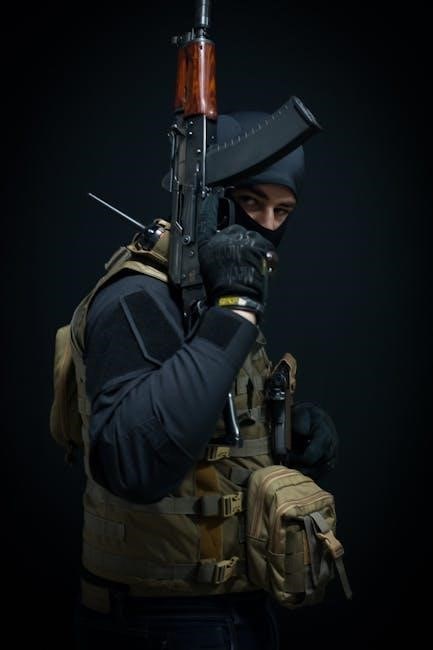
Training and Preparation
Physical and Mental Conditioning
Tactical Training and Simulation
Survival and Evasion Techniques
Advanced Weapons and Equipment Training
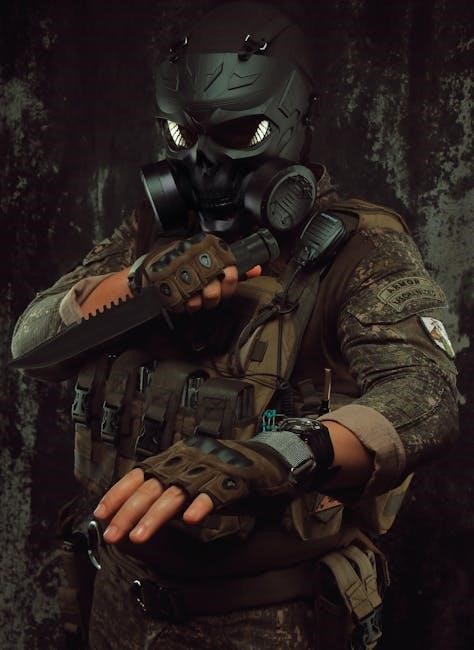
Special Forces in Modern Conflicts
Operations in Afghanistan and Iraq
Counterinsurgency Strategies
Urban Warfare Tactics
Asymmetric Warfare Challenges
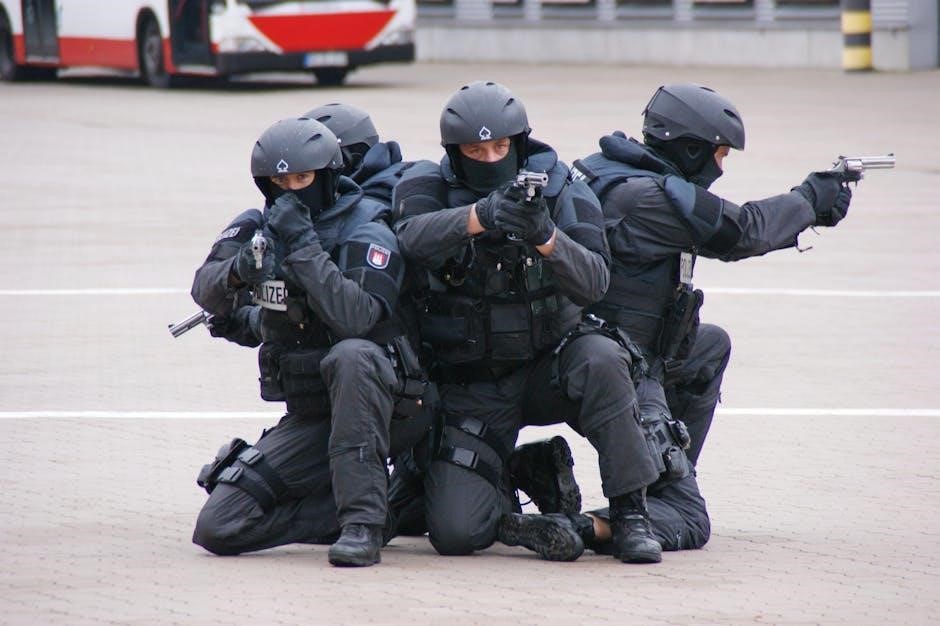
International Collaboration and Partnerships
NATO Special Forces Cooperation
UN Peacekeeping Missions
Global Counterterrorism Efforts
Regional Security Alliances
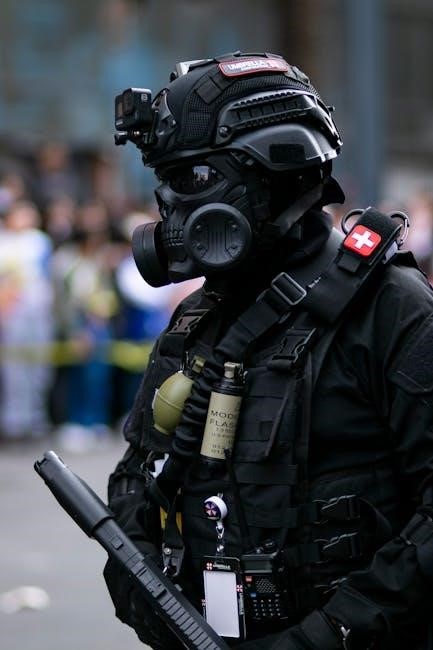
Future of Special Forces
Emerging Technologies and Innovation
Doctrinal Shifts and New Challenges
Expansion of Roles and Capabilities
Strategic Adaptations to Modern Threats
Summarizing the Role of Special Forces
Future Prospects and Continuous Evolution
